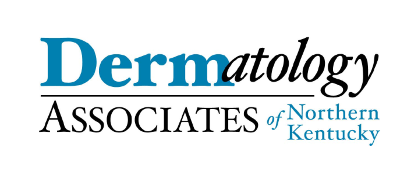Mohs Surgery
Mohs micrographic surgery is a specialized technique for the removal of skin cancer. Developed by Dr. Frederic E. Mohs in the 1930s. It is usually used for cancers at high risk for recurrence, including those on the nose, lips, eyelids or ears; those that are large, poorly-defined or recurrent after prior treatment; and those with aggressive microscopic features. Here at Dermatology Associates, Dr. Mark Zalla performs Mohs Surgery. The Mohs Procedure allows Dr. Zalla to microscopically examine the entire margin around and beneath the skin cancer. This precise examination ensures complete removal of the cancer while avoiding removal of excess normal skin, leaving a smaller wound and less scar.
Mohs surgery involves removal of the cancer one stage at a time, followed by detailed mapping and processing of the tissue for complete microscopic examination. Following this examination, if any cancer remains, the location is pinpointed on the map, and additional tissue is removed in the affected area only and processed again. These steps are repeated as needed until the cancer is completely removed.
Following removal of the cancer, depending on the size and location of the wound, several repair options are available. In certain cases, wounds are allowed to heal on their own, with daily wound care over two to six weeks depending on size. In most cases, wounds are repaired with sutures, providing faster healing and usually less noticeable scars. Dr. Zalla will discuss these options fully with you on the day of your surgery.
In some instances, patients are referred to Dr. Zalla by another area surgeon, in which case we will work with your referring surgeon to remove your cancer using Mohs surgery, after which you will return to him or her for reconstruction that afternoon or over one of the next several days. In that case appointments for both removal and repair will be arranged prior to surgery.
Mohs surgery is performed in our office using local anesthetic; general anesthesia is not necessary. The entire procedure, including repair when necessary, usually takes less than four hours, most of which is spent in the patient lounge waiting for processing of tissue. Recliners, television, and refreshments are available. We suggest you bring reading material, craft work, etc. if desired. We also suggest you bring one family member or friend with you; although not always necessary, it is often helpful to have a companion during review of postoperative instructions and to drive home if needed.
Before Surgery
We suggest comfortable, loose fitting, layered clothing. Women should not wear makeup or panty-hose, although knee-highs are acceptable. You may eat regularly prior to surgery, although we suggest avoiding alcohol on the day prior to surgery to minimize risk of bleeding.
With the exception of blood thinners as below, take any regular medication which has been prescribed by your doctor. Do not take Fish Oil, Vitamin E or aspirin-like medications (Motrin®, Advil®, Alleve®, etc.) for one week prior to surgery. Prescribed blood thinners such as Coumadin® and Plavix® should be continued, as well as aspirin if you have had a medical condition requiring it (heart disease, stroke, artificial valve, blood clots, etc.). However, if you are taking aspirin on a preventive basis only, without a history of heart disease, stroke, or other medical condition, discontinue this one-week prior to surgery. Call the office if you have questions about specific medications.
After Surgery
We recommend avoidance of exercise, heavy lifting, or significant exertion for two days following surgery. You should also not fly for two days following surgery. Other limitations may be suggested based on the location and extent of the Mohs surgery or reconstruction.
Risks
Whenever a cancer is removed, the skin heals with a scar. The size and quality of the scar depends on the size and location of the cancer. It is impossible to exactly predict the final size of the cancer until it is examined microscopically. To minimize scarring, options for repair of the wound will be discussed with you. Occasionally, touch-up procedures may be performed after the wound or repair has healed.
Insurance
Most insurance plans cover Mohs micrographic surgery, though you will be responsible for any co-pays or deductibles required by your plan. Some carriers require a referral or authorization from your primary doctor prior to surgery. Please call your insurance representative for details regarding your plan and to confirm we are participating providers in your plan.
Scheduling
Surgery is performed in the Mohs surgery suite in the offices of Dermatology Associates of Northern Kentucky, P.S.C., located at 7766 Ewing Boulevard, Suite 100, in Florence, Kentucky. You may call the office at 859-283-1033, Monday through Friday from 8:00 a.m. to 5:00 p.m. to schedule an appointment.

